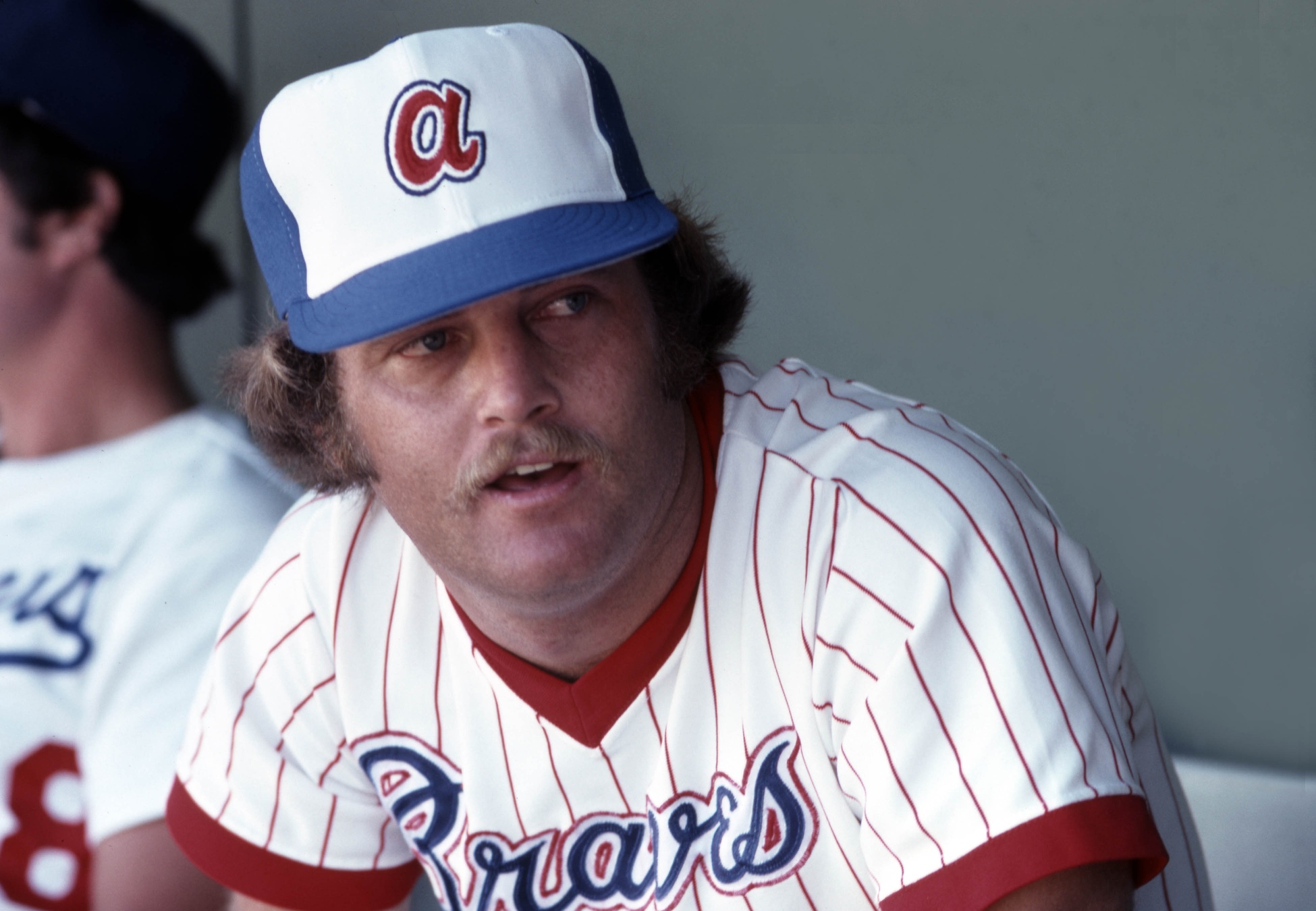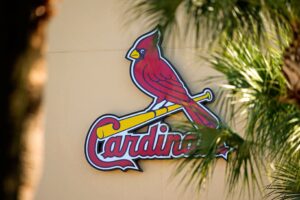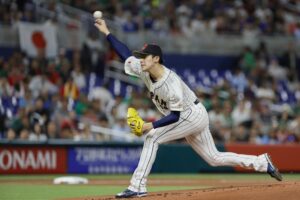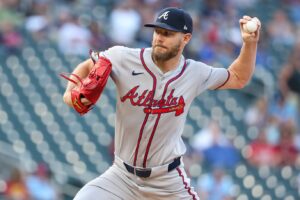For those who have been keeping up with this series, you might be asking yourself about some of the more classic Atlanta Braves comebacks. Well, for this installment of our merry little jaunt through history, we turn to the late 1970s. This was a time that was known as being rather dark for the team. A little over a decade removed from their move to Atlanta from Milwaukee, the Braves were still seeking something of an identity. They were also looking to upend the recent bevy of metaphorical clouds that had swept over the franchise. Yes, the 1970s may have been groovy for some. But for the South’s favorite chopping brigade, the woes of poor attendance, poor play, and just poor luck overall threatened to drag the team into a pit of inescapable depth.
It’s not that the team lacked significant talent in some areas. Henry Aaron, Phil Niekro, Darrell Evans, Bob Horner, Dusty Baker, Gene Garber, and Gary Matthews were just a handful of the great names that played for the Braves in the 1970s. Unfortunately, the team was marred by some absolutely dreadful pitching aside from the aforementioned knuckleball master. But we’re not here to discuss the woes of the 1970s Braves. This is a story on the list of the best Atlanta Braves comebacks. So, put those frowns away as we cheerfully delve into this grand tale. It might help smooth over some of the negative memories that lots of the fan base from this time may continue to let percolate. Come, if you will, back to a Wednesday night in Chavez Ravine…
Atlanta Braves Comebacks: #3
Setting the Stage: 1978 Atlanta Braves
In terms of Atlanta Braves comebacks, this one is not exactly conventional. The 1978 Braves definitely continued the downward motif of the decade. In total, they went 69-93, finishing 26 games out of first in the NL West. It did mark some significant firsts for the team, though. The first of these firsts was the debut of a 37-year-old firebrand from Tulsa, Oklahoma as the team’s new skipper. His name was Bobby Cox, and history would go on to vindicate him as one of the very best. The other first for the team was a rookie at first base named Dale Murphy. While he had two tiny cups of coffee at the big league level in 1976 and ’77, ’78 was his first year…and it showed. Surprisingly enough, the Braves did not strike out much. In fact, Murphy was their only player to have over 100 strikeouts.
1978 Atlanta Braves
Dale Murphy (Catcher) and Gene Garber pic.twitter.com/9QfxdXAUob
— OldTimeHardball (@OleTimeHardball) April 2, 2023
Elsewhere on the diamond, Horner helped lead the team with 23 homers and a 124 OPS+. However, it was left fielder Jeff Burroughs that was the offensive captain. He hit .301 with 23 homers, 77 RBI, a 156 OPS+, and a .961 OPS. Unfortunately, the statistical consensus on the bats was a whole lot of power, but next to no small-ball awareness. Pair this with a pitching rotation that had a collective ERA north of four, and you begin to understand why the Braves finished where they did. Good years from Burroughs, Horner, Niekro, and Garber just couldn’t help the team out of their hole.
1978 Los Angeles Dodgers
Meanwhile, on the other side of the diamond, the 1978 Los Angeles Dodgers were the toast of the National League. They had the best record in the league by five games over the Philadelphia Phillies, whom they later dispatched quite easily in the NLCS. They had the NL’s best offense, combining power with versatility and a good deal of speed. Their .264 average and 149 homers led an admittedly beleaguered group of teams. Outfielder Reggie Smith led the way. Though he wasn’t quite as impressive as in 1977, he still belted 29 homers, hit .295, and posted a .942 OPS. He was supported by .270+ average and 20+ homer seasons from Steve Garvey and Ron Cey. Finally, Rick Monday made his first All-Star Game in a decade, clubbing 19 homers off the bench.
Then, there was the pitching. The rotation lacked for absolutely nothing. Led by the twin domination of future Hall of Famer Don Sutton and 19-game winner Burt Hooton, the team didn’t experience very much trouble on the mound. In the bullpen, guys like Lance Rautzhan, Charlie Hough, and closer Terry Forster helped ensure that victory was never very far out of reach. All-in-all, it’s easy to see why the Dodgers won 95 games and a pennant in ’78. They themselves were bested by the New York Yankees in six games in the World Series. However, Tommy Lasorda and his players had nothing to hang their heads about….well…almost nothing.
July 5, 1978: @ Los Angeles Dodgers
A Blue Start for Atlanta
The beginning of this contest was like many others that the Braves experienced during this period in franchise history; namely, total domination by their opponent. Not only that, but Burroughs went down after grounding out in his first at-bat in the top of the first. The bottom of the frame brought trouble as starter Adrian Devine issued a leadoff walk to Davey Lopes. This opened the proverbial floodgates and Cey and Garvey picked up back-to-back RBI base hits, making it 3-0. Devine was pulled after giving up a leadoff base hit in the second, and new pitcher Eddie Solomon was the victim of shoddy defense. Murphy, the starting catcher, hurled a ball into center field while trying to catch Lopes stealing. This allowed Bill North to score and the Dodgers took a 4-0 lead.
They weren’t done there, as Cey led off the third with a single to deep short. Garvey followed that up by launching a Solomon offering deep into the Tinseltown night. The next batter, former Brave Dusty Baker, drew a walk. Dodgers catcher Joe Ferguson then punched a double into the left-center field gap, scoring Baker. This made it 7-0 and, after the next batter reached, Solomon found that his night’s work was through. Between Devine and Solomon, only two complete innings were recorded. In them, the Dodgers scored seven runs, with six being earned, and walked six times. The tandem gave up seven hits and a homer, failing to register a strikeout. Yes, it looked like business as usual for the struggling Atlanta pitching staff.
The Braves Come to Life
After Ferguson homered off Jamie Easterly to make it an even eight runs for Los Angeles, the Braves suddenly sprung to life in the top of the sixth. Dodgers starter Tommy John had been almost untouchable up to this point. He’d held the Braves to only four hits in five innings. However, Rod Gilbreath changed that by drawing a walk to open the sixth. Jerry Royster and Bob Beall followed with back-to-back singles to load the bases for Gary Matthews. He promptly punched a single to left field, getting the team on the board. Gaston and Horner followed with RBI groundouts, cutting the Dodger lead to 8-3. Unfortunately, the team was unable to do anything else in this inning. The bullpen, on the other hand, played an essential role in holding the Dodgers to two baserunners in their final four innings.
The Big Inning
Then came the ninth, where all the drama unfolded. Rautzhan came in to try and preserve a five-run Dodger lead. Things started positively for the Dodger reliever, as Barry Bonnell flew out to right. The next two batters picked up hits, just in time for Royster to come to the plate again. He picked up an RBI hit, cutting the lead to four. Two batters and a pitching change later, Matthews drew a bases-loaded walk, making it 8-5. An RBI hit from Cito Gaston made it 8-6 and, after a Horner strikeout, Murphy lined a game-tying single to left field. Forster was brought in to relieve Charlie Hough, and Bonnell greeted him with an RBI hit to give the Braves a permanent lead. Garber had no issues in the bottom of the inning and the team left Dodger Stadium with one of the best Atlanta Braves comebacks.
Photo Credit: Darryl Norenberg-USA TODAY Sports
Players Mentioned: Hank Aaron, Phil Niekro, Darrell Evans, Bob Horner, Dusty Baker, Gene Garber, Gary Matthews, Dale Murphy, Jeff Burroughs, Reggie Smith, Steve Garvey, Ron Cey, Rick Monday, Don Sutton, Burt Hooton, Lance Rautzhan, Charlie Hough, Terry Forster, Adrian Devine, Davey Lopes, Eddie Solomon, Bill North, Joe Ferguson, Jamie Easterly, Tommy John, Rod Gilbreath, Jerry Royster, Bob Beall, Barry Bonnell, Cito Gaston
Managers Mentioned: Bobby Cox, Tommy Lasorda






